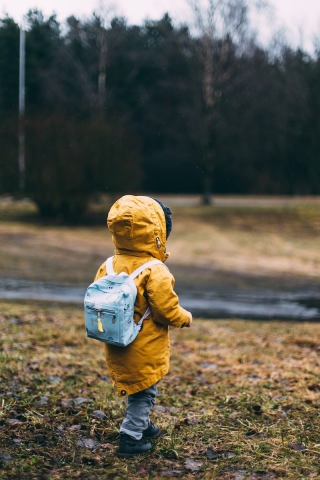Child Development
Even in War, Children's Lives Must Matter
War, terrorism and the protection of children's rights.
Posted October 22, 2023 Reviewed by Gary Drevitch

When the world goes to war, the outcries against atrocities towards children don't seem to be heard loudly enough to stop young people from being traumatized, abused, injured, and killed. The historical and geo-political context surrounding terrorism and war is too often used as justification for the unacceptable exploitation and abuse of children, teenagers, and young adults. I do accept that there are important perspectives and factors that keep wars raging on, but my focus is on the survival, rights and mental health of infants, children and adolescents.
Claudia Catani, professor of clinical psychology at the University of Bielefeld, has found that children living in or fleeing war-torn regions have a high probability of suffering from mental health problems because they are confronted with an accumulation of risk factors at different socio‐ecological levels. Worse, children are sometimes raised with the intention of being used to continue fighting battles that should have been resolved by their parents and grandparents.
How to protect children
The first step is to get them, along with their mothers and/or their fathers, out of the firing line and into safety. Children should not be involved in conflict and they should not be used as human shields. The most important role of parents and caregivers is to keep their children physically and mentally safe. As they grow up, they learn from their parents how to navigate their own limits and risk-taking exposures. Being protected from harm is the essence of what children need from us. That includes being protected from becoming either a victim or a perpetrator of terror and murder.
How to help traumatized children
According to child and adolescent psychiatrist Michelle Liu, the devastating effects of war and terrorism call for a “multilayered” approach for supporting communities, families, and individuals. Practically, this includes promoting safety, connectedness, and hope, reuniting families, and restoring infrastructure. Schools should have emergency plans. First responders such as police, firefighters, medical personnel, and teachers should be trained regarding the effects of trauma on children and how to manage under these circumstances. Screening should be used to identify children and families at high risk for trauma-related psychological distress. Children whose lives are personally disrupted by trauma, such as those who have witnessed family members killed and/or had their homes demolished and/or have become orphaned or live in distressed families, are particularly vulnerable. Screening and aid may be delivered in clinical or school settings, although during times of crisis, schools may be closed for the safety of the children — or because of their use as shelters, or their risk of being targeted.
Children and families who manifest psychiatric symptoms will benefit from mental health care, including psychotherapy. Unicef offers valuable advice about how to talk to children about violence and war, as does the National Child Traumatic Stress Network. Making sense of the situation can help children to feel more in control and less confused and bewildered.
Changing policy and attitudes in the interests of child protection
The shifts that need to happen in order to keep children safe need to happen globally, at the level of policy, and within each parent and person of power and influence. The developmental phase of adolescence should include building a strong identity and finding a way to separate psychologically from parents. It should not involve learning how to be a killer, dying in battle, or becoming traumatized in a way that haunts the individual forever.
Children and teenagers need their parents, teachers, and leaders to show them how to live in fairness and justice alongside one another, even when there are challenges that seem insurmountable. They need their adults and protectors alive and sane, not dehumanized or terrified. We should be teaching children and teenagers how to keep human rights intact, not about how to kill, torture and abuse We fail them when we raise them in the narrative of an enemy that needs to be erased. Leaders and grown-ups should fight their own battles, finding solutions without violence, and leave kids to grow up in peace.
References
Claudia Catani (2018). Mental health of children living in war zones: a risk and protection perspective. World Psychiatry 17 (1), 104-105. doi: 10.1002/wps.20496
Convention of the rights of the child. Unicef. https://www.unicef.org/child-rights-convention/convention-text
Michelle Liu (2017). War and Children. The American Journal of Psychiatry, 12 (7), 3-5.


